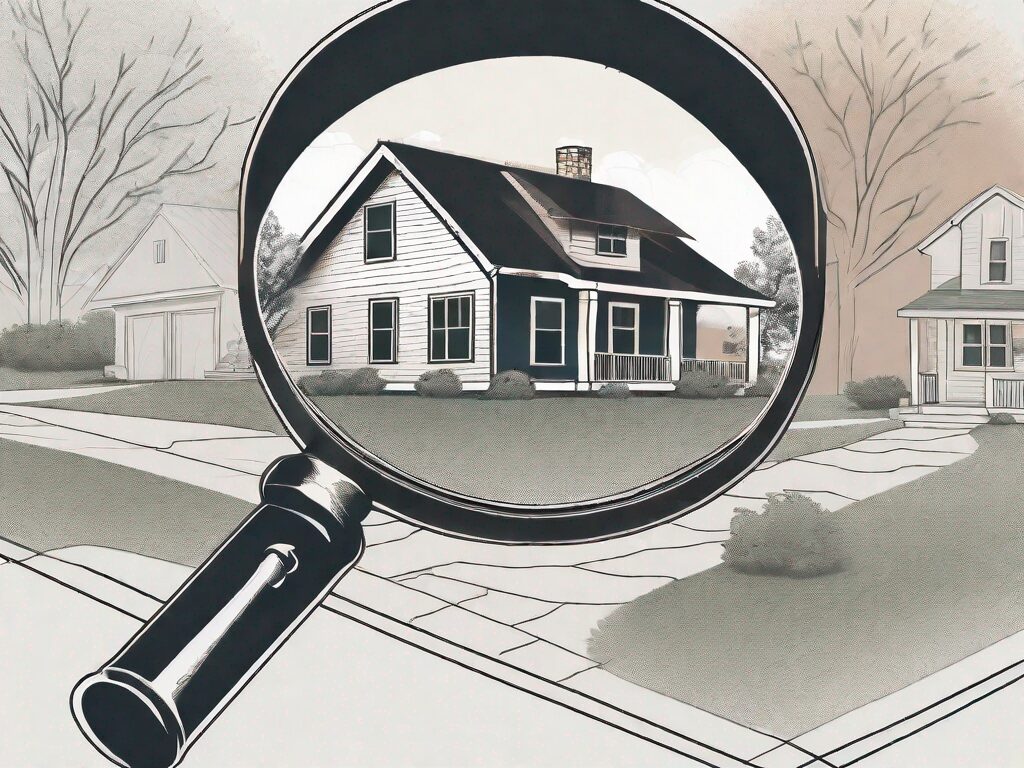
Agent A-Team or Solo Superhero? Finding the Right Real Estate Partner for Your Selling Journey in Wildwood Florida
When it comes to selling your home in Wildwood, Florida,…
January 29, 2024
When purchasing a home in Omaha, Nebraska, one crucial step that buyers must take is getting a home inspection. A home inspection provides valuable information about the condition of a property, helping to uncover any hidden issues that may affect its value and safety. However, it’s essential to be aware of the costs associated with home inspections in Omaha before diving into the process. Understanding these costs will enable home buyers and sellers to make informed decisions and budget accordingly.
Home inspection costs in Omaha can vary based on several factors. It’s important to understand these factors to gain clarity on what to expect and establish a reasonable budget for the inspection process.
When it comes to buying a home, a thorough inspection is crucial to ensure that you are making a sound investment. A home inspection provides you with valuable insights into the condition of the property, helping you make informed decisions and potentially saving you from costly repairs down the line.
Now, let’s delve deeper into the factors that can affect the price of a home inspection in Omaha.
Several key elements can impact the overall cost of a home inspection in Omaha. These factors include:
By considering these factors, you can better understand the potential costs associated with a home inspection in Omaha.
In addition to considering the factors mentioned above, it’s essential to be aware of the various types of home inspections available in Omaha. These inspections focus on specific areas or systems within a property, providing a more comprehensive evaluation.
Let’s take a closer look at some of the common types of home inspections and their associated costs in Omaha:
Each type of inspection serves a specific purpose and provides valuable information about different aspects of the property. Depending on your needs and concerns, you can choose to include one or more of these inspections in your overall inspection process.
Remember, investing in a home inspection is an investment in your peace of mind. It allows you to make an informed decision about the property and negotiate repairs or price adjustments if necessary. So, when budgeting for a home inspection in Omaha, consider the factors mentioned above and the types of inspections available to ensure a thorough evaluation of your potential new home.
One significant consideration when it comes to home inspection costs is determining who is responsible for paying them. This responsibility can vary, depending on certain factors and negotiations between the parties involved.
In Omaha, the responsibility for paying home inspection costs is typically negotiable between the buyer and seller. It’s common for buyers to cover the expenses since they are the ones benefitting from the inspection results. However, in some cases, sellers may agree to cover some or all of the inspection costs to attract potential buyers or address any concerns that may arise during the process.
When buyers take on the responsibility of paying for the home inspection, they gain the advantage of having a thorough assessment of the property’s condition. This information allows them to make informed decisions about the purchase and potentially negotiate repairs or price adjustments based on the inspection findings. By investing in a home inspection, buyers can protect themselves from unexpected issues and ensure they are making a sound investment.
On the other hand, sellers who agree to cover the home inspection costs demonstrate their commitment to transparency and building trust with potential buyers. By taking this financial responsibility, sellers show that they are confident in the condition of their property and are willing to invest in the buyer’s peace of mind. This gesture can help attract more interested buyers and facilitate a smoother transaction.
In certain situations, buyers and sellers may decide to split the cost of a home inspection in Omaha. This arrangement allows both parties to share the financial responsibility and demonstrate their commitment to a fair and smooth transaction.
Splitting the bill can be done in different ways, such as evenly dividing the total cost or covering specific inspection types individually. This approach ensures that both parties have a vested interest in the inspection process and encourages collaboration throughout the transaction.
By sharing the cost, buyers and sellers can work together to ensure a comprehensive inspection that addresses all necessary areas of concern. This collaborative effort can foster a positive relationship between the parties and set the tone for future negotiations and interactions.
Ultimately, who pays for a home inspection in Omaha is a matter of negotiation and agreement between the buyer and seller. It’s essential for both parties to discuss their expectations and reach a mutually beneficial arrangement before proceeding with the inspection.
When it comes to home inspections in Omaha, understanding the costs involved is crucial for both buyers and sellers. By considering the factors that affect the price of a home inspection and exploring the different types of inspections available, individuals can make informed decisions and budget accordingly. Additionally, determining who is responsible for paying the home inspection costs is a vital aspect of the negotiation process. Whether it is the buyer, seller, or a shared responsibility, reaching a clear agreement beforehand ensures a smoother transaction. Taking the time to research and comprehend the cost of home inspections in Omaha will help foster a successful real estate experience.

If you want the Richr team to help you save thousands on your home just book a call.
 Book a call
Book a call